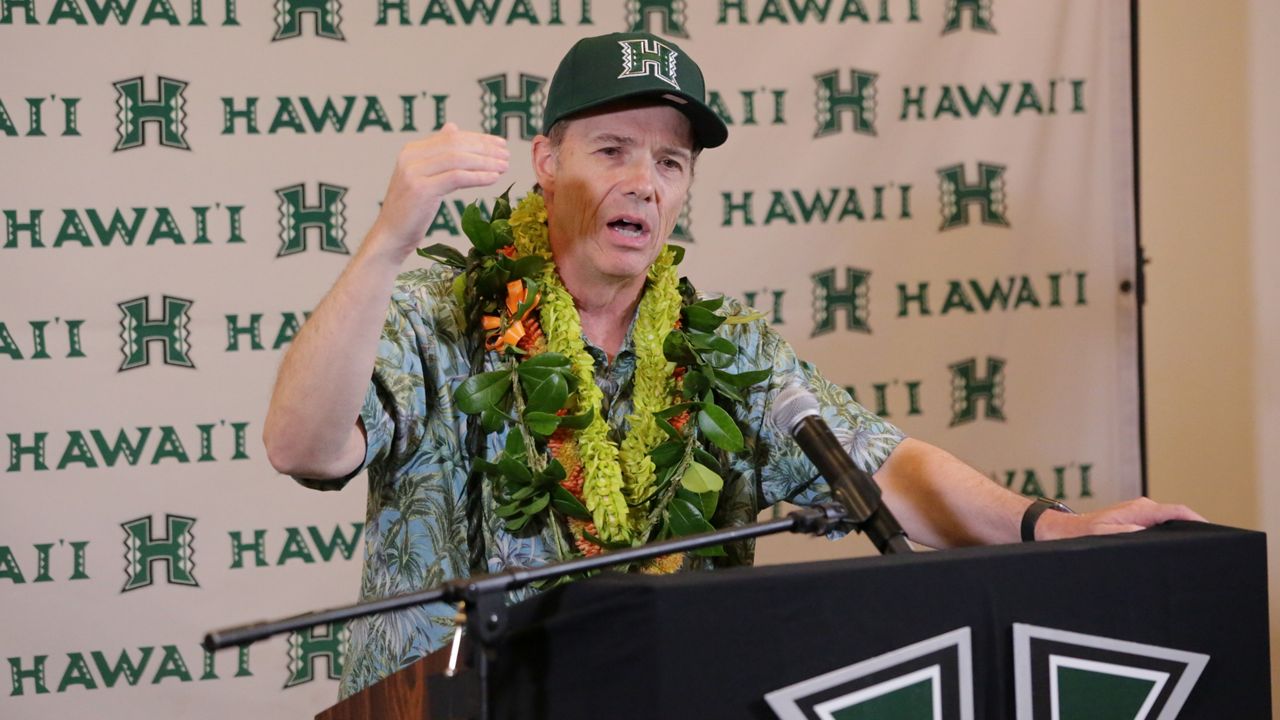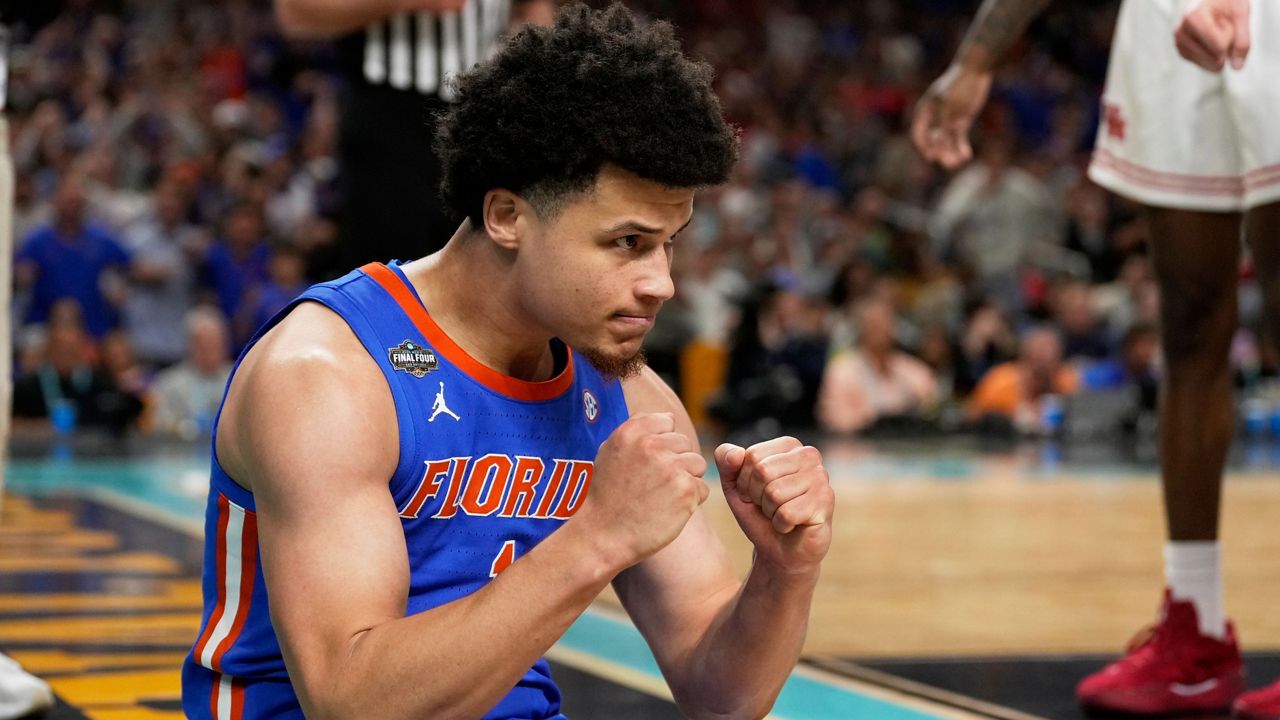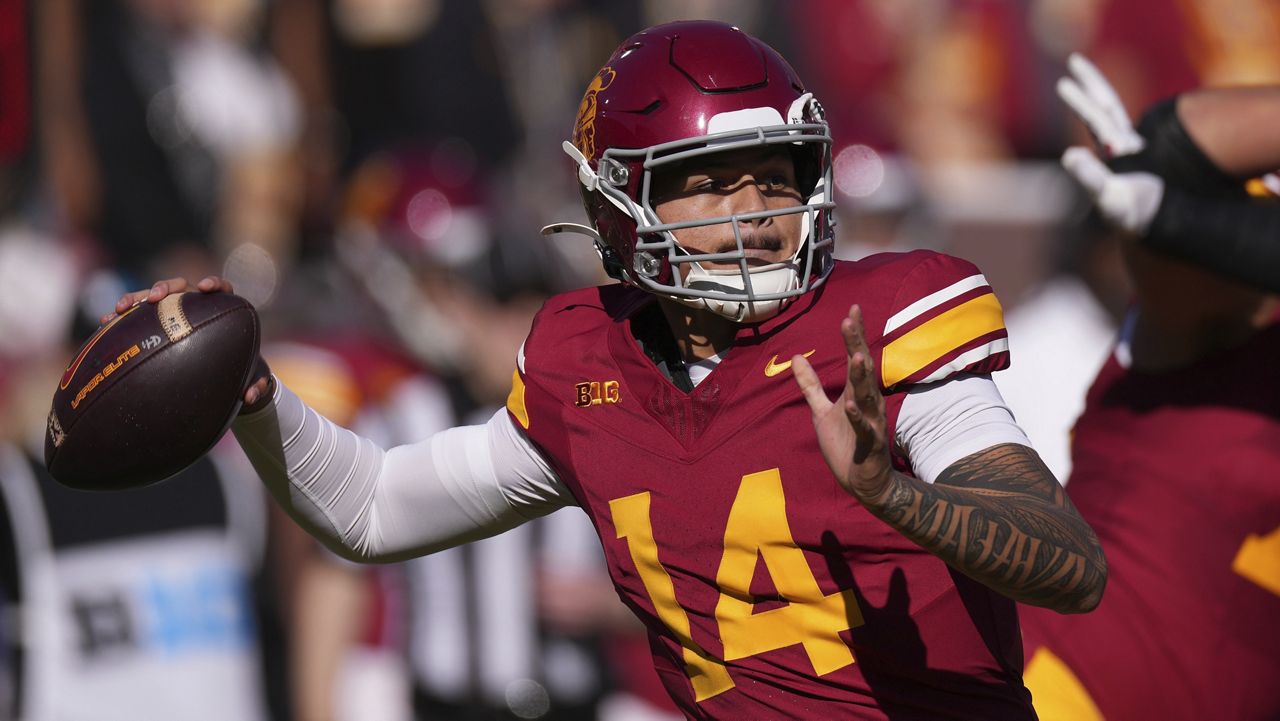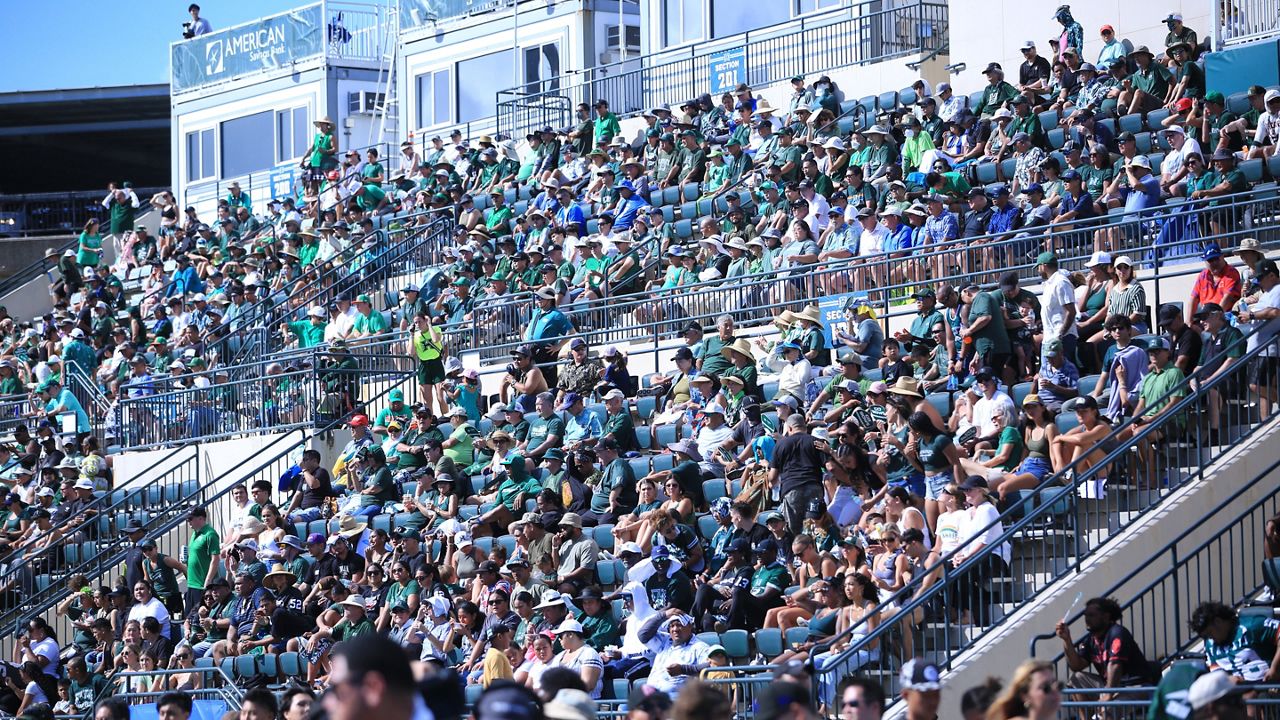HONOLULU — Craig Angelos’ official introduction came last Thursday following the University of Hawaii Board of Regents’ meeting at Honolulu Community College, but the process of familiarizing himself with movers and shakers in the local market is ongoing.
The soon-to-be UH Manoa athletic director flew back to the East Coast on Friday for some final preparations before heading out to the islands for his June 5 start date. Before he did, Angelos went on a media blitz, including granting Spectrum News a 30-minute 1-on-1 phone interview, in which he delved into several topics of interest.
Among the revelations was that he does not plan to bring in any support staff with him to Hawaii; he says he plans to make use of the existing staff at Lower Campus, including associate athletic directors.
Note: The interview has been condensed for clarity.
Q: What do you make of all the local media attention you got up to and through the hiring process and your introduction?
A: I think it’s fantastic. I was telling someone I know that Honolulu is the 70th media market in the country, and I’ve lived in the fourth media market, the first media market. But if they don’t cover you, then it means nothing. And so, the coverage of UH athletics and the interest in UH athletics has been outstanding. I know it’s not always going to be positive, but at least there’s a lot of interest in UH athletics.
Q: Which of your seven previous stops at universities most closely resembles Hawaii's sports media attention? (Angelos has worked at Miami, Indiana, Florida Atlantic, South Florida, Florida International, Temple and Long Island)
A: I don’t think (any do). I really don’t. Even when I was at the University of Miami, we were always third on the totem pole in Miami behind the University of Florida and Florida State. Even when we were winning national championships, because there was a lot more alumni of Florida and Florida State in the Miami region, and not as many Miami alums. And so, I’ve been in some places where you feel like you’re irrelevant. I’d rather be loved or hated than be irrelevant, and I’ve been in those places where you’re somewhat irrelevant. So, I don’t think I’ve seen any place I’ve stopped at that has more interest.
Q: What’s the best piece of advice you got coming into this job?
A: I would say, be humble. Look, listen and learn and integrate yourself into this culture and get them behind you. And then you can unite together and do great things together.
Q: You have almost 30 years in college athletics administration. Did you intend to make this a career or did it just fall that way?
A: My whole goal in life has been to be an athletic director. (After finishing pro baseball, going to law school and working for the NCAA) I went to Miami and had a great experience there and took care of their issues after (they) got put on probation. I was on the fast track, being the No. 2 guy at a young age there, and then (there was) a leadership change there and I knew that probably wasn’t going to happen. So, I continued on my journey, but always looking to be an athletic director. Even after I got moved out of Florida Atlantic, my goal was, ‘OK, how do I get back to being an athletic director,’ and trying to plot (my) course back. I’ve had a lot of opportunities to get out of the industry at times, do some consulting, do this do that, but I’ve never wavered on my intent to be an athletic director and stay as an athletic director. That’s why I’m so thrilled to be here.
Q: What has changed the most in college athletics since you were last a head athletic director at Florida Atlantic in 2012?
A: That’s a good question. Along all the stops I’ve had, even the most recent one at Long Island, I’ve always said, the game is the same, so to speak. It’s all about student-athletes’ success, it’s about winning ballgames, it's about balancing your budget. So no matter what level you’re at, whether it’s Division I, II or III, or anything in between, those core principles remain the same and that’s what the game is really about.
But, having said that, the various nuanced changes that have become very prevalent are that, since the last time I was there, is the transfer portal for football and basketball where they can go immediately, before they sit out a year if they went to another school. That limited movement a lot. And then you combine that with NIL (name, image, license) opportunities, and collectives that are funded outside of athletics, so you pretty much have morphed more into a free agency type of business where there’s no salary cap. You think about pro sports, they’ve been doing this for a while, but they have a lot of rules in place. They have a salary cap. Everyone’s playing by the same rules. It’s much more regulated. But in college, it’s not regulated at all now.
Q: How can a school like UH compete in that setting?
A: I think you gotta just understand where you fit in the whole pecking order, and then you’ve got to play to your strengths.
In my mind it’s a three-pronged approach: You’ve got to keep your good players that you have, you’ve also got to be on the lookout for players who are playing in divisions (lower) than you, or star players who can step up who’ve demonstrated they’re star players, maybe at the I-AA level, or they’ve demonstrated at the SEC level that they’re star players but they’re just not getting enough playing time and want to come here to play. Your recruiting department and your player personnel department have to have their heads on a swivel and be really proactive on all those three fronts to keep yourself in the game.
And also try to create an environment here, through NIL and collectives and whatnot, that we can be a player in that space, on those three fronts.
Q: Was there any reason you went from Utah, where you grew up, to the Eastern Time Zone for the bulk of your career?
A: I think you just go where the opportunities are. That’s been my mantra. You go where the opportunities are. Opportunities may not always be convenient, but they are opportunities.
Sometimes you get knocked down a little bit but you get yourself back up, (and keep) on moving. I’ll go anywhere, anytime to take a great opportunity, and I have the support of my family and my wife (Kristin), especially to be able to do that, because a lot of people don’t have that opportunity to do that. They’re more limited in where they can go. I have not had that limitation. I’ve got that in my spirit to go wherever the opportunities are, and that’s led me here to Hawaii, because I think that’s a great opportunity. It'll be my home and I’m not looking to go anywhere else.
Q: Are any of your six children coming out here with you?
A: I’ve got three still in college. One at Arizona State, one’s graduating from Lafayette, he’s a quarterback, and he’s going to go into grad transfer to play at another school after this. And then I’ve got another at Florida Atlantic getting his MBA. So but I think the younger ones will be here for the summer at least, and then they’ll go back to their schools. So most likely it’ll be just myself and my wife. I have another daughter working on Capitol Hill in Washington, D.C. and another one in California and another one in Montana.
Q: Do you intend to bring in any staff you’re already familiar with?
A: No, I have no plans for that. When ADs come in, there’s three ways of doing it. One, sometimes they bring in the top people, and they get rid of the top people in the department and bring in the top people of their own choice. Second is, (they don’t get) rid of anybody, but they bring in their top people to oversee that group. And the third way, which is what I plan on doing, is plugging in with the staff that you currently have and keep the machine running. And that’s what I plan on doing. So, we’ll see how that goes, but I’m confident that these people will be as good for me as they were under David Matlin.
I just don’t think that just because an athletic director change occurs that suddenly a person is not a good employee. I have a very good understanding of what it’s like to be on both ends of that equation. I’m real sensitive toward that whole thing. People have lives, families, careers. And they are people. We’re in the people business at the end of the day. I’m sure that they’ll do whatever’s needed to be successful here.
Q: How would you describe your leadership style?
A: Well, whether you’re a player or you’re a staff member, I like the real collaborative approach where they feel like they can share their ideas and recommendations and we are able to banter back and forth. They feel like they have a voice in the whole organization and then hopefully we agree on the direction we’re going to go. At the end of the day, I’m in a position of responsibility and make the final call, and hopefully they get on the board with that if it’s something they weren’t interested in doing. And we continue to move forward.
Q: UH’s relationship with the state Legislature has been fraught for a while, both in and out of athletics. What would you do to improve the situation?
A: Well, I think relationships are the No. 1 thing in life. It’s all about personalizing these relationships. (It) doesn’t mean that just because you’re friends or have a good relationship that you’re always going to agree on things. But I think it all starts with having a relationship with people. If you establish that and have some mutual trust in a relationship, then you can share ideas and maybe grow together. So that would be my intent from the beginning. Get to know everybody and listen to what they have to say, and what their concerns are about the department or the university, and see how we can maybe bridge the gap there, and work together.
Q: What's your philosophy for football scheduling?
A: You want to do home-and-homes with the Power Five if you can, because that really helps draw the crowd at home. You may have to do a guarantee game to get money, but you also need wins. You need to hit your six (or in UH's case, seven) wins. The key, I think, for the success and perception of the program, is to be bowl eligible every year. You want to be competitive in your conference and then try to schedule your nonconference games accordingly. If things go according to plan, you want to be at least 3-2 in your nonconference. Then when you go .500 in your conference games, you’ll be 7-6 and that’s a pretty good place to be in, the baseline every year.
Q: Anything to add?
A: Every place is unique and has its certain characteristics. For me personally, I liken my interest to my trip. I’m racing here wanting to get started, and let’s see what we can do here. I mean, I can’t guarantee results, but I can guarantee effort, and I think that’s what you’re going to see. Generally, activity breeds productivity, and that’s where a great effort will yield results, and that’s what I’m hoping happens here.
Brian McInnis covers the state's sports scene for Spectrum News Hawaii. He can be reached at brian.mcinnis@charter.com.








